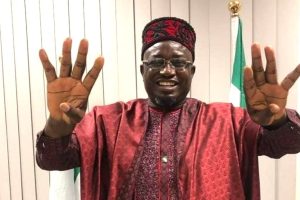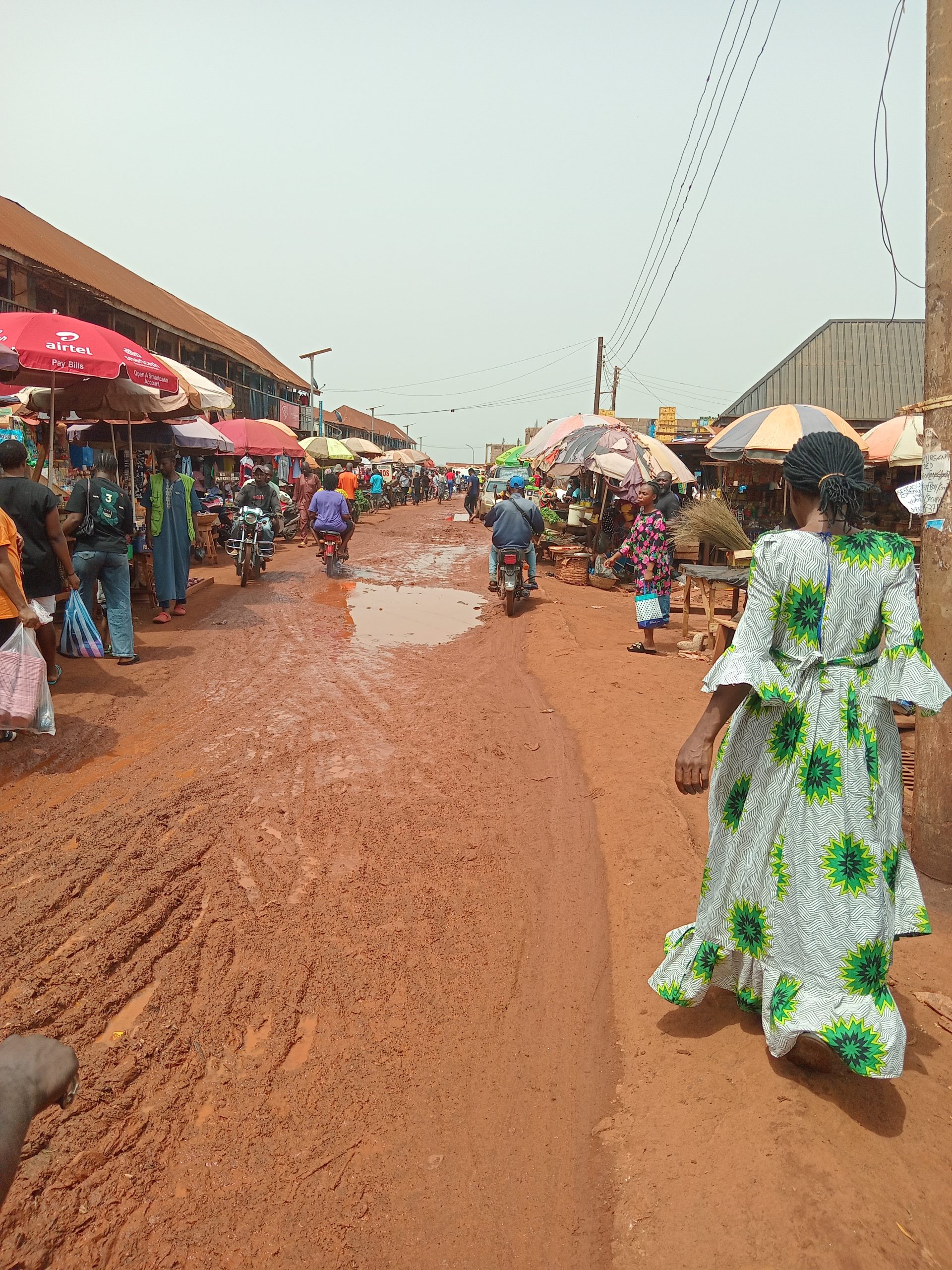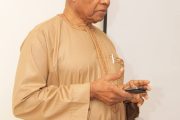The late Chief Uloko Okoko may not have been one of the regular names we encountered in the newspapers but he ought to have been in the media regularly. It is for no other reason than that he was a fortune teller, meaning that he was a philosopher, contrary to colonial framing of fortune telling as primitive and uncivilized practice. The fortune teller in precolonial and colonial Africa was practitising what is now known in philosophy of (social) sciences as interpretivism. What the fortune teller was doing was drawing inferences from a kind of unstructured interview with his clients on the one hand and connecting the answers to some other issues and situations at the time. In doing so, he arrived at probable scenarios.

The late Chief Uloko Okoko
There is nothing strange about the probabilistic nature of his conclusions. Probabilism is how science as a whole, including Physics and medical science, works. As such, fortune tellers were usually the most intelligent souls in the community because they were not doing anything against the rules of science. But like other similar practices, they were labelled as uncivilized and primitive by colonial anthropologists.
Attending Chief Uloko Okoko’s second burial at Opialu Village in Edumoga District of Okpokwu Local Government Area April 5th, 2024 was thus homage to a fortune teller and to fortune telling. It is a contribution to the protest movement in International Relations against the hegemony of positivism. Those who do not understand what positivism means can feel free to call it the way of knowing based on 1 + 1 = 2. In the social world, 1 + 1 hardly gives anybody 2. So, the contention is that the best way to study human affairs is through interpretivism. That is why we can say that a fortune teller is at the heart of modernity today. One evidence for that is the on-going change in the name of International Relations (IRs) to Global IRs. The change is so as to accommodate the way of knowing of others outside the Western world. Global IRs is basically the de-westernisation of IRs. The same is going on in other disciplines.
Raphael Adeka and Godwin Idoko are two credible community leaders in the village. Add Dr Mathew Agaba, an elite from the area who is conversant with the late Chief Ajekwu’s fame. They all told Intervention how the late chief drew many powerful politicians to Opialu. They came to seek his interpretive verve. There are no details of who came or the accuracy of his predictions to them but the fact that the men (and perhaps women too) of power never stopped coming suggests that he had a track record. His death has, therefore, robbed the village as well as Edumoga District and, in fact, Idomaland of his services. Unfortunately, because fortune telling was framed as something primitive, none of his children learnt under his feet, implying the end of an era as always happen whenever such a person dies anywhere in much of Africa.
The fullness of his burial was the only compensation. Although the politicians stole the day, it was an opportunity to listen to the palace drummers again. The palace drummers at the OchÍdoma’s Palace and as replicated in other districts speak an esoteric language which an elder has to deconstruct before toddlers understand it. But the drumming they do can be a sobering encounter. The occasion was also an opportunity to see so many beaded and non-beaded clan heads around the area. And one to watch other traditional dances. The idea that colonialism has wiped away culture may have to be qualified henceforth because that is not completely true. Intervention asked an elder if the flutists, in particular, were saying what their forebears would have been saying around 1955 to 1959 and he said yes.

Hon Ottah could not return to the House of Reps in 2023. Now, he wishes to supplant Abba Moro, his political opponent, in 2027
Now, talking about the politicians, attention would go to Francis Agbo Ottah. Intervention did not meet Senator Abba Moro at Agamudu where the spate of burials started that day, attended by several politicians, party bigwigs from all sides, businessmen, Reverend Fathers, women and young people who followed politicians mainly. Abba Moro had already left by then. But there was Philip Agbese at the burial. He didn’t seem to spend much time. Then there was Ottah Agbo who went to Chief Uloko Okoko’s burial after Agamudu. At the second burial, he totally dominated the event as he found an apt space to practice his populism. It is the sphere he is gifted, with the rhetorical capacity to reduce his agenda to the language that rhymes with the folks: proverbs and wise sayings.

Senator Abba Moro
He was interesting in many ways but even at the close of the day, he reinforces the key questions about politics and social transformation in Idomaland. While he was speaking, he called the two areas he had been to that day agrarian communities. That was fantastic. But how do you achieve social transformation in an agrarian community? That is, how do you move such communities from agrarian settings to modern settings in the material sense? On this question, Ottah was also interesting. He said something about why a politician in an underdeveloped country should not afford to rest. It is doubtful if anyone can successfully challenge him on that. And he went further to talk about center-periphery theory. His ability to invoke these sort of concepts to that audience indicate hope-rising.
But it is doubtful if the idea that there are models by which agrarian communities are transformed elsewhere is common to the politicians in the area. It is doubtful if anyone had been speaking the language of integrated development since 1999. What we have seen is chaotic stomach infrastructure approach or citing a bore hole here, renovating a primary school there or a similar infrastructure over there. That is what politicians call development and that is what they understand as politics. So, is Agbo Ottah going to create consensus among his colleagues to come to terms with the idea of integrated development or he is going to approach integrated development all on his own or he is just using the concepts?
Assuming he wants to, how does he create consensus among his colleagues, all of who regard each other as enemies? Can he create a link between himself and the Idoma Senatorial District and go solo? He can only be a Senator in 2027 if he defeats the incumbent, Abba Moro. Assuming he does that, has he an alternative institutional platform from which the resources to accomplish integrated development will be possible? In other words, is the Senate seat what he should be looking for if he has the potentials to effect integrated development? Of course, an effective elite with capacity for networking into crucial centers of national power can accomplish integrated development in Idomaland. That is doable.
His categorization of the parts of lower Edumoga he went on April 5th, 2024 to attend the two burials as agrarian makes him attractive from the point of view of potential. It is because it implies agro-industrial transformation strategy which is the only way out. But can he resolve the likely roadblocks to the realization, especially that more contenders are likely to emerge before 2027? Francis Agbo Ottah may be worth watching by people interested in politics and development strategy. The question now is whether he is the one who is to come or shall they look for another?
Ottah wasn’t the only one at the burial in Opialu. Barrister David Adulugba was also there but he wasn’t as full of dramatics as Ottah. He seems not to have made his move, preferring to keep his supporters guessing yet. As a son of a former District Head, he can make waves by connecting diverse discourses quickly into a message. He could have an interesting message! Finally, is Mathew Agaba bidding his time or a disinterested onlooker? Has he got the resources to be a break through in politics? Having grown up or connected somehow to much of lower Edumoga, he could strike a blow but it doesn’t seem clear yet. None of the socialists from the area are advancing to be recognized which might be typical of their contempt for traditional politics. Otherwise, Comrade John Odah, ex-General Secretary of the Nigeria Labour Congress (NLC) is from this area. He has not been seen at home, politically. It is unlikely he would want to form a militia in the name of politics but a militia seems to be required.
Michael Achadu, the simple looking youngster who buried his father at Agamudu on April 5th, 2024 achieved something for lower Edumoga by dragging wealthy politicians to such a remote farming enclave. He was, indirectly, telling the politicians: look at the people you left behind with nothing since 1999. yet, they are the same people on behalf of whom you pad budgets in Abuja, year in, year out. Agamudu is just one of such villages. The entire Idomaland is like that, including messy Otukpo but the villages in the lower part of Edumoga are worse off. It is a whole belt of peasant agricultural producers who not only produce the items but also have to carry them on their head to the nearest markets. On their way, they encounter all manner of security operatives, pay all manner of taxes in the markets and risk whatever they sold being taken by force from them by one set of gangs or another.
Right now, all the attention is on garri, made from raw cassava. So, many in the belt have empowered themselves. They are even building huge aluminum roofed mansions, very modern in many way. But if only the process is not so back-breaking and which takes us back to integrated rural transformation. And where or who is thinking through the scenario of what happens in the event of a crash in the price of garri in Nigeria? That should be the local government branches of the political parties and the local government councils. But are the parties and LGCs peopled to think strategically? And who is going to change all these by working on the basis of simple, appropriate models rather than on brainwaves?




























